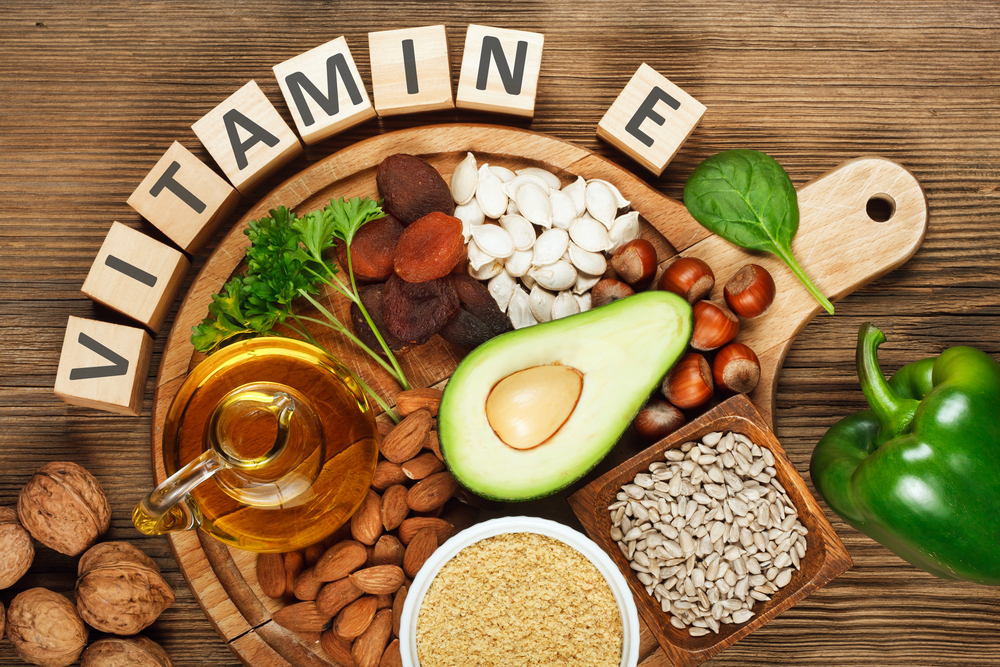Introduction:
In the intricate tapestry of nutritional elements, Vitamin E stands out as a silent hero, quietly weaving its benefits into the fabric of our health. Recognized for its antioxidant prowess, this fat-soluble vitamin plays a crucial role in safeguarding our cells from oxidative stress. Join us on a journey to explore the multifaceted benefits of Vitamin E, an essential nutrient often underestimated in its significance.

Understanding Vitamin E:
1. The Antioxidant Guardian: At its core, Vitamin E is a potent antioxidant, standing guard against free radicals that can cause cellular damage. Its protective role extends to various tissues, contributing to overall health and well-being.
2. Fat-Soluble Essential Nutrient: As a fat-soluble vitamin, Vitamin E is absorbed along with dietary fats, becoming an integral part of cell membranes. This unique quality ensures its presence in critical cellular structures, enhancing its protective capabilities.
Benefits for Skin Health:
3. Nourishing and Rejuvenating: Vitamin E is renowned for its skin-nourishing properties. Its antioxidant nature helps combat oxidative stress, reducing the signs of aging and promoting a more youthful complexion.
4. Wound Healing: Vitamin E contributes to the process of wound healing by supporting the formation of collagen, a crucial protein for skin repair. Its regenerative qualities make it a valuable asset for addressing scars and promoting tissue recovery.
Cardiovascular Support:
5. Heart Health Ally: Studies suggest that Vitamin E may play a role in supporting cardiovascular health by helping to maintain healthy blood vessels. Its antioxidant properties may contribute to reducing oxidative damage in the cardiovascular system.
Immune System Boost:
6. Strengthening the Defense: Vitamin E supports the immune system by enhancing the function of immune cells. Its role in protecting cell membranes contributes to the overall robustness of the body’s defense mechanisms.
Brain Health and Cognitive Function:
7. Cognitive Shield: Some research indicates that Vitamin E may have a protective effect on cognitive function as we age. Its antioxidant properties potentially play a role in preserving neurological health.
Incorporating Vitamin E Into Your Diet:
8. Rich Dietary Sources: Vitamin E can be found in a variety of foods, including nuts, seeds, leafy greens, and vegetable oils. Incorporating these nutrient-rich sources into your diet ensures a steady supply of this essential vitamin.
9. Consideration of Supplements: While a well-balanced diet is the primary source of Vitamin E, supplements can be considered under the guidance of a healthcare professional, especially for those with specific health conditions.
Conclusion:
Vitamin E, often overshadowed by its more spotlighted counterparts, emerges as a crucial player in the symphony of nutrients our bodies require. From its antioxidant shield to its support for skin health, cardiovascular well-being, and cognitive function, Vitamin E’s contributions are vast and profound. Embrace the power of this antioxidant dynamo by incorporating Vitamin E-rich foods into your diet, and let its protective qualities fortify your journey to optimal health.
